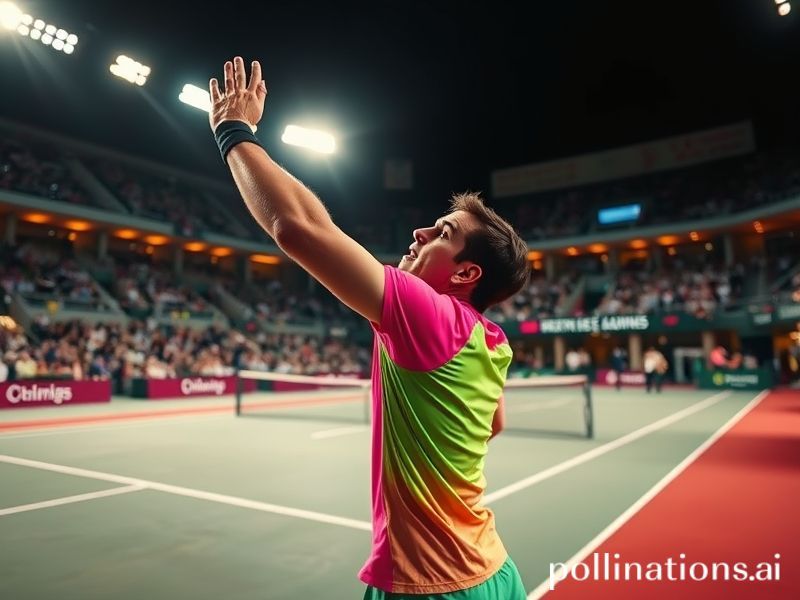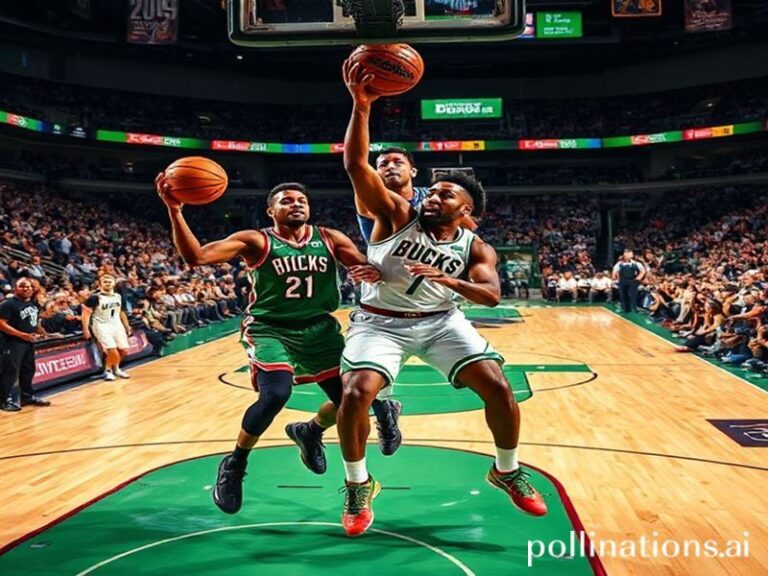Nick Kyrgios: The Global Trickster Exposing Tennis—and Humanity’s—Sweet, Rotten Core
Nick Kyrgios: The Antipodean Trickster Who Became the Planet’s Favorite Villain in a Sport That Loves Its Villains
By the time the first champagne cork popped in Monte Carlo’s tax-optimized penthouses, word had already reached the Gaza strip, the Lagos hip-hop club, and a Dalian dormitory that Nick Kyrgios was at it again. Somewhere between a tween-ager’s tantrum and a veteran’s existential shrug, the 28-year-old Australian had managed to weaponize indifference so effectively that the entire tennis-industrial complex—an apparatus usually busy laundering Saudi oil money or selling Rolexes to oligarchs—paused to watch a kid from Canberra tell it to kindly stuff its strawberries and cream.
This is not a redemption story. Let’s get that clear before the ghostwritten LinkedIn post drops. This is the chronicle of how a sport that once prided itself on pristine whites discovered that a half-Greek, half-Malay kid with a mop-top and a podcast could become its most globally recognizable export since Federer’s hairline. Kyrgios doesn’t win Slams—he wins attention arbitrage. In a world where every government, app, and auntie is screaming for eyeballs, that is the only currency still pegged to gold.
The international implications are deliciously bleak. Tennis Australia, fresh off a diplomatic slap-fight with China over Peng Shuai, now markets Kyrgios as the bloke who’ll sell broadcast rights from Boston to Bangalore. Meanwhile, the ATP’s “Be Nice” ad campaign—think Hallmark card meets HR seminar—runs concurrent with slow-mo replays of Kyrgios smashing rackets so elegantly that even the carbon fiber seems honored to die on court. The contradiction is the point; nothing sells like cognitive dissonance wrapped in fluorescent shoes.
Zoom out and you’ll see the geopolitical farce. Kyrgios is streamed live in Kyiv bomb shelters and on Emirates flights where alcohol is still served because theocracy makes exceptions for turbulence. His matches are pirated in Tehran, subtitled in Spanish for Medellín betting rings, and live-tweeted by bored U.S. congressional staffers during impeachment hearings. One man’s mid-court monologue is another man’s distraction from drone footage. The world burns; Nick provides commentary, occasionally on-court microphones he pretends not to notice.
Commentators—those court-side undertakers in linen suits—keep diagnosing him with “laziness,” “untapped potential,” or the ever-popular “mental health journey.” Translation: he refuses to pretend that smacking yellow balls for six hours is the noblest use of a finite life span. The horror. In a decade where billionaires race to Mars because Earth is too gauche, Kyrgios’ sin is reminding us that meaning is optional. He plays because Thursday exists and the direct deposit clears; everything else is marketing spin or unpaid emotional labor.
Of course, the cynicism is mutual. When Wimbledon fines him for spitting toward a spectator (a charming tradition dating back to the plague), he shrugs and pockets more in appearance fees than the average Moldovan sees in a lifetime. Meanwhile, Nike stitches his name onto shoes stitched by hands that will never afford a plane ticket to Melbourne. The circle of life, sponsored by a swoosh.
Yet there’s something almost noble in his refusal to genuflect. In an era where athletes are forced to moonlight as geopolitical spokesmodels—tut-tutting about human rights between Rolex photo shoots—Kyrgios simply declines the homework. He won’t solve climate change before the next changeover. He won’t pretend the Uyghurs are thrilled about cotton harvests. He’ll just serve 230 km/h, curse creatively, and let the rest of us scroll on. It’s a perverse honesty: the world is broken, the prize money is outrageous, and the coffee in the players’ lounge is still tepid. Deal with it.
So when the inevitable biopic drops—think “Catch Me If You Can” but with more backhands and fewer Pan Am uniforms—remember the moral: global relevance no longer requires victory laps, just the audacity to treat spectacle like the joke it always was. In that sense, Nick Kyrgios isn’t tennis’ problem child. He’s the sport’s cracked mirror, reflecting a planet that can stream intergalactic gossip in nanoseconds yet still can’t agree on line calls. Game, set, match—humanity loses, ratings soar.







